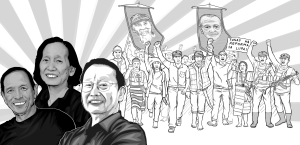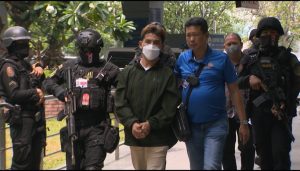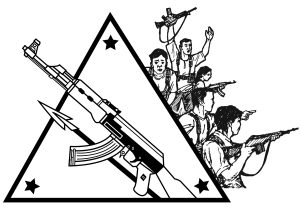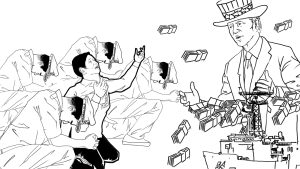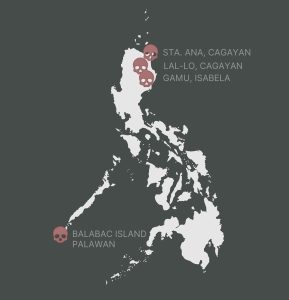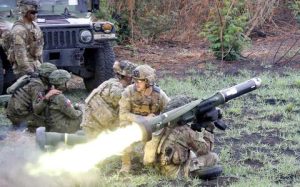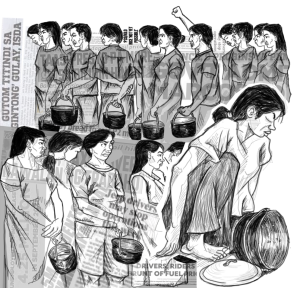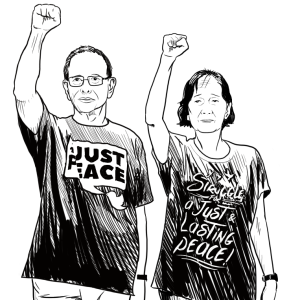At crossroads: Preparing the youth for full-time revolutionary work


Andres Bonifacio’s revolutionary blood flows through the veins of young people. Not far from Tondo where Bonifacio was born lies the headquarters of young revolutionaries who lived by the vow, “I offer even my life.”
Every day, members of the Kabataang Makabayan arouse, organize and mobilize their fellow youth in the universities to visit factories, poor communities and farms to see the real situation of the people. They encourage young people to take part in the revolutionary struggle, support the armed struggle and join the New People’s Army.
To become fulltime revolutionaries is not an easy decision as it entails great sacrifices in lifestyle and devoting one’s time entirely to the tortuous path of resistance.
KM chapters play a big role in nurturing more full-time revolutionaries. In the past, experience have shown the importance of all-rounded consolidation to help members develop the resolve to work full-time in the cities or countryside. Part of this is a sustained education program, a program for immersing with the basic masses, building strong links with guerrilla fronts, and conducting trainings to prepare the youth on the difficult path of the armed struggle.
Although university education stopped during the pandemic, young people did not stop studying society. The completion of the basic and special mass courses about Philippine society and revolution, the writings of Jose Maria Sison, and discussions on Marxism, Leninism, and Maoism was key to building and strengthening the revolutionary resolve of its members. Secret study circles were formed to gather KM members in the universities and conduct collective study discussions. The theories learned from these discussions would become weapons for members and collectives to better comprehend the contradictions of society and even individuals.
In addition to theoretical discussions, an important component of the program of KM chapters is putting theory into practice by taking part in the people’s struggle. The Party works closely with KM chapters to increase the number of young people who work among the basic masses. As the youth regularly go to communities, they realize their role in society – as propagandists and organizers among basic masses.
Young people, particularly students, use their skills as intellectuals to explain to the common people their exploitation, and the path of national democratic struggle.
KM chapters are working to help strengthen the workers’ movement and the formation of red workers’ brigades within factories and neighboring communities. In the past, many young people have decided to work full time after immersing with the toiling people. As one full-time activist said, “Being with the masses makes the difference because you experience their tragic reality.”
Chapters of KM are also conducting a vigorous campaign to go to the countryside and join the NPA. It has developed programs that tighten the links of KM and Party members among the youth to the guerrilla fronts in the countryside. This has resulted in greater material support, deployment of forces to fronts, and closer cooperation with the political campaigns of the provinces and regions. It also includes a program to prepare the youth physically for difficult life in the mountains. Members are encouraged to regularly exercise, eat right, and undergo special military training. Unlike the state’s mandatory ROTC, training under the people’s army is more meaningful and engaging as it is principled and serves the interest of the masses. The youth firmly embrace and take part in it.
Young people go through many contradictions in the process of forming the conscious decision to work full-time. There are personal contradictions, those in their studies, finances, and most of all, in the family. Many have second thoughts of going full-time because of family considerations. Many parents, especially at the outset, disagree with their children’s decision to become activists or revolutionaries. The state exploits this by conducting anti-communist propaganda that targets them. However, more ofthen than not, this is overcome through tireless explanation wherein young people earn their parent’s support for their decision to take the revolutionary path.
Other young people, at a young age, already shoulder the burden of working for their families. Some try to complete their studies to get a better job, while others who could no longer wait, choose to leave school to work for low wages.
But no matter how difficult, they still choose to confront these contradictions as it is clear to them that the only hope of changing society lies in the triumph of the people’s democratic revolution. Through consolidation and constantly confronting these contradictions collectively, it becomes possible for them to decide to work full-time. They apply the theories they learned, such as dialectical materialism, to deconstruct contradictions and find solutions. These are also the key to their self-remoulding and repudiation of individualism inherent among the young pettybourgeois that pulls them back from serving the masses. Theory and practice strengthens their resolve to remould themselves and overcome these tendencies, and move forward with every task.
As the revolutionary movement continues to move forward, more young people will contribute their knowledge, talent and strength for the people. The inspiration they draw from Bonifacio and all the heroes of the Filipino people will strengthen their whole-hearted decision to devote their entire life to advancing the revolution.

